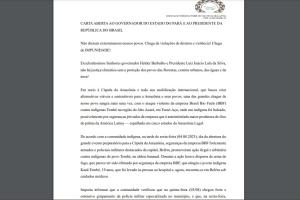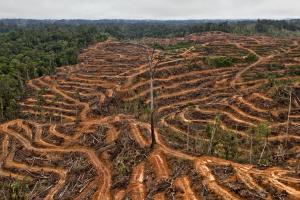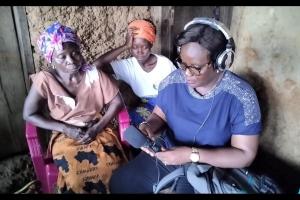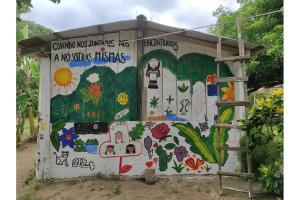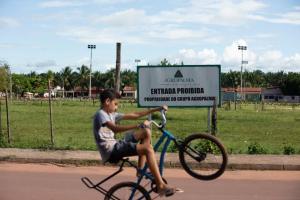Palm Oil
The oil palm tree is native to West Africa. It is an important tree for forest-dependent communities, their cultures and their economies. However, large-scale oil palm monocultures for industrial production (oil and agrofuels) have been driving deforestation and land grabbing in Southeast Asia. More recently, oil palm monocultures are also driving destruction in Africa and Latin America.
Multimedia
11 August 2023
Tembé indigenous leaders shot by private security forces (only available in Portuguese).
Articles
11 August 2023
Your Excellencies Governor Helder Barbalho and President Luiz Inácio Lula da Silva, there is no climate justice without the protection of two forests, urban centers, water and land! (Only available in Portuguese).
Multimedia
28 July 2023
In the state of Chiapas, in southern Mexico, women's organizations are resisting the advance of a monoculture crop that is invading their lands and bringing scarcity and water pollution.
Bulletin articles
22 July 2023
This article tells the story of a women group in Kalimantan called “Hurung Hapakat”, which means “Working Together”. Collectively, and against serious repression, they have reclaimed some land from oil palm plantations in order to also reclaim their food sovereignty, dignity and wisdom. And they are not alone.
Bulletin articles
22 July 2023
Women's organizations are resisting the advance of a monoculture crop that is invading their lands and bringing scarcity and water pollution. In this podcast, they explain their situation and their struggle. The podcast was produced by the groups Women of the Chiapas Coast against Oil Palm and Coastal Women in Rebellion, in collaboration with WRM.
Action alerts
28 April 2023
Multimedia
22 March 2023
Socfin oil palm plantation company has meant violence and oppression in several African countries. Sierra Leone is no exception.
Action alerts
24 February 2023
Bulletin articles
16 January 2023
Oil palm plantations are a central cause of deforestation in southeast Mexico. A network of women in Chiapas have organized to denounce the tactics of coercion and deception employed by the State and companies to get peasants to accept this monoculture on their lands. Their struggle is for the land, for their knowledge, and for their voices to be heard.
Bulletin articles
16 January 2023
Oil palm plantation company Socfin has meant violence and oppression for affected communities in several African countries. Sierra Leone is no exception. In collaboration with Aminata Finda Massaquoi, a journalist and the national coordinator of the women’s advocacy network WORNAPI, WRM is releasing a podcast to highlight the voices of women living with the impacts of industrial plantations.
Other information
16 January 2023
The news portal Metrópoles travelled 5,700 km to denounce how the palm oil production chain affects quilombola communities and Indigenous Peoples in the state of Pará, Brazil—namely through expropriation of traditional communities, environmental impacts, and a labor history analogous to slavery.
Other information
16 January 2023
In September 2022, two large contingents of national police and military were dispatched to oil palm plantation concession areas of the Plantations et Huileries du Congo (PHC) in Lokutu and Boteka.

